|
The accelerated adoption of the Euthanasia law in Canada has thrown us into a troubling attack on the sanctity of life. Initially introduced by the Canadian Government to alleviate severe physical suffering, the law is now being suggested as a method to "manage" mental health conditions. Bill C-7, an amendment to the Criminal Code relating to medical assistance in dying (MAiD), proposes expanding eligibility for MAiD by removing the requirement that a person's natural death must be reasonably foreseeable. This could allow individuals not nearing the end of their lives, including those with mental illnesses such as depression, to avail themselves of this provision. Since its adoption, over 31,000 medically assisted suicides have occurred in Canada - a number projected to rise significantly with the planned expansion of the law to include those suffering from mental health conditions. However, mental health illnesses are highly treatable. Symptoms can be managed, and lives can be lived to the fullest. Broadening access to MAiD is not the solution, particularly when our priority should be to choose life over death. We must ensure all efforts are taken to protect the most vulnerable from medically assisted premature death, which can be prevented with adequate treatment and care. We should ensure that those suffering from mental illness are treated medically, not through assisted dying. Conservative MP Ed Fast has brought forward a Private Members Bill C-314 to rescind the government’s decision to expand Canada’s assisted suicide laws. The bill asserts that medical assistance in dying should not apply to persons suffering solely from mental illness. The vote will take place by members of parliament on October 18th. As the CCCB urges all the faithful in their Open Letter in May 2023: “We encourage individual Catholics and their families, faith communities, Catholic healthcare professionals and any other people of good will to continue courageously and unwaveringly to witness to life, to tend to and accompany the sick, to resist pressure to support or participate in ‘MAiD,’ and to pray that our law makers may see the harm in what they are permitting to take place.” Let's continue to pray for those living with mental health challenges and illnesses and those who care for them, that God may strengthen them in hope, and that they may find the support they need from family, healthcare professionals, faith communities, and others. The Catholic Women's League (CWL), a national organization of Catholic women, emphasizes the sanctity of human life as one of their key missions. Amidst the pressing social justice issue of inadequate mental health and palliative care services in Canada, and the critical concern surrounding MAiD, they are urging members and the faithful to take action and reach out to their Member of Parliament, requesting support for Bill C-314. With the vote scheduled for October 18th, time is critical. Please share this vital message with your family and friends.
Notes:
Reading materials:
3 Comments
Together with the Canadian Conference of Catholic Bishops (CCCB), Bishop McGrattan is urging the faithful to continue to oppose the expansion of MAiD in Canada. The CCCB has just issued an Open Letter to the Government of Canada and a Message to the Catholic Faithful on May 9 re: Permitting Persons Living with Mental Illness to Access Euthanasia/Assisted Suicide. We ask you to share the Bishop's message with your friends and family:
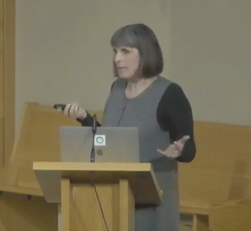 Dr. Peggy Thomson-Gibson Dr. Peggy Thomson-Gibson
Canadian Catholics who want a more fulsome public discussion of the law regarding medically-assisted death are being called to use their faith to move a legislative mountain. But take heart. The first item on the change agenda involves something as simple–and important–as writing letters to your Member of Parliament and key government ministers, says Dr. Peggy Thomson-Gibson.
The catch? With people’s lives at stake, there’s no time to lose. A Catholic and Calgary physician, Dr. Thomson-Gibson recently addressed MAiD (Medical Assistance in Dying) at a special meeting held at St. Peter’s parish. There, the medical doctor encouraged Catholics to learn how “we can defend our faith without raising our voices.” To do that, Catholics need solid information about their faith–and about what’s at stake, especially with proposed changes to MAiD law, says Thomson-Gibson. The problem with MAID Approved in 2016, existing MAiD law allows Canadians to choose a medically-assisted death when their death is “reasonably foreseeable.” Health Canada recorded 7,595 MAiD deaths in 2020, up from 1,108 in 2016. For information about why the Church rejects euthanasia or assisted suicide, visit this page. Looking ahead, the number of MAiD deaths to date are a fraction of what was expected had proposed amendments come into effect this March. The now-delayed changes expanded MAiD’s accessibility while simultaneously decreasing oversight, says Dr. Thomson-Gibson. Of primary concern was a change that allowed people with mental illness as their sole criterion to choose a medically-assisted death. People with a severe long-term condition or disability could also access MAiD, opening the door for medically-assisted death to be offered instead of treatment. Opponents say this confuses the notion of a “right” to die with a “duty” to choose death over treatment. This is especially troublesome in a public health system where disabled or mentally-unwell individuals could be made to think they are a financial burden on their families or society. Information released in 2022 shows the proposed changes also cut a mandated reflection period for those whose death is “reasonably foreseeable” under current law. Instead of a 10-day period, the changes required a single day. Another change drops the legal requirement for two witnesses to one and the sole witness could be a paid health professional. These amendments were scheduled to come into effect in March 2023. They were delayed in late 2022, and again last week. This provides more time for study and input. That timeline underscores the opportunity for faith-based outreach, like letters to the Prime Minister and individual Members of Parliament, says Thomson-Gibson. She suggests letter writers model respect in their letters and conversations about MAiD. Catholics looking for more guidance about how “to shed light, not heat” on hot-button topics should check out information from Catholic Voices Canada (https://catholicvoices.ca), adds the doctor.
The World Day of the Sick is celebrated each year on February 11, the liturgical memorial of Our Lady of Lourdes. It is an occasion to pray for individuals who are suffering, and to find concrete ways to draw nearer to them. The Holy Father's 2023 message is entitled: "Take care of him - Compassion as a synodal exercise of healing". In light of the Church's synodal journey, Pope Francis invites us "to reflect on the fact that it is precisely through the experience of fragility and illness that we can learn to walk together according to God's style of closeness, compassion and tenderness."
Pastoral suggestions for the World Day for the Sick (Feb. 11, 2023) for parishes and all the faithful:
Resources for World Day for the Sick:
As human beings with both body and soul, we take good care of ourselves through healthy relationships, especially our relationship with God, and with the help of science. Watch this video and see how both science and the Faith connect.
“Help me!” Out of a dark bathroom in a long term care home, I heard a plaintive cry and froze. I was there to bring the Eucharist, nothing more. I turned to seek out an attendant and heard again, “Don’t leave me!” Heart pounding, I crept forward, identified myself loudly and turned on the lights to find an elderly woman on the toilet. With shaking hands I cleaned her and helped her to stand up. She leaned against me as we washed our hands. Secretly I thought, “I have wiped Christ’s bottom.” Jesus said that whatever we do for the least of his brethren we do for him. This is true whether we cook for our family, give alms to the poor or serve at Mass. However, it might be particularly true when we are called to move out of our comfort zone and give more than we intended to. For example, when we offer to buy a street person a coffee and he chooses a whole meal with it. Or we call to check in on a friend and she spills out her woes for an hour. When we give of ourselves we prefer to have a measure of control over the experience but that is not how God gives of himself. God gave his only son, and Jesus gave his lifeblood for us. God continues to give constantly and completely, so we are called to do the same. This kind of self-emptying service is what Pope Francis called “the art of accompaniment”. “The Church will have to initiate everyone – priests, religious and laity- into this “art of accompaniment” which teaches us to remove our sandals before the sacred ground of the other.” (Evangelii Gaudium 169) I am coming to understand The Art of Accompaniment through a series of talks given by Fr. Tim Boyle at St. Martha’s Parish in Lethbridge . So far Fr. Boyle has noted that accompaniment is not quite the same as caregiving, although it might include that. To accompany someone is to first of all recognize that God is with them. As guest speaker Reno Guimond said, “We are not bringing God to anyone. God has been there long before we show up. We go to see where God is.” Besides recognizing God in each person, we also need to understand how God works in the world. Fr. Boyle encouraged his listeners to imagine God “delighting” in the world as he created it. “God has invested himself in creation,” Fr. Boyle said. “This is not a one-time event but an evolving artwork. If God accompanies us as an artist not as an engineer then God is vulnerable to the unfolding of Creation… God suffers in the process… God chooses to spend himself on creation.” This form of sacrificial support was expressed ultimately by God becoming human and Jesus’ death and resurrection. For us, sacrificial giving of ourselves is often a challenge. Society dictates that one must preserve oneself, must learn to ‘Say No’, and ration one’s time and energy. Yet Creation shows otherwise. Fr. Boyle used the examples of salmon making death runs upstream to spawn, and sunflowers drying up to produce seeds for food and for procreation. “Like salmon and sunflowers, every creature, in order to reach their full potential, needs to empty themselves out”, Fr. Boyle said. So how is this achieved in practical terms? How does one accompany another person, whether continuously or when called upon? It begins when we accept God’s accompaniment of us. This happens through grace which Fr. Boyle suggests is “like manna – something given by God every day which cannot be stored up but only taken advantage of that day.” Grace is not a weapon or superpower, it doesn’t enhance our abilities. Indeed it requires us to first accept that we have no ability without God. We are flawed and vulnerable beings made precious by God’s acceptance. It is God’s grace that sustains us, sanctifies us. When we understand this dynamic we are better prepared to handle the vulnerability of others, to accept it, and handle it gently. Since my first incident of extreme vulnerability in long-term care, my ministry partner and I have been called upon to assist a few others at their times of greatest need, in life and even approaching death. While I still feel my heart pounding each time, the experiences have been deeply humbling. I know God is helping me learn how to cherish the sacred ground of others.
If you or someone you know is experiencing a mental health, suicide or substance use crisis or emotional distress, reach out to Alberta Mental Health Helpline 24/7 to 1.877.303.2642 or Access 24/7 at 780.424.2424 Dear October, For the past two years I’ve lost a loved one to suicide inside your month. There – I said it. It’s been a quiet grief. These have been difficult deaths to process and, not knowing what’s acceptable to say in public, I’ve kept mostly quiet out of respect for those who mourn. And yet, I am also mourning. My pain is real and it remains. Same too with the unanswered questions which linger, like debris that’s sunk to the bottom of the ocean – still there, but normally out of sight. Autumn has been unusually warm and charming this year. The golden leaves that glisten skyward in the hot sun. Jupiter hanging out at sundown next to the moon. It’s been hard to reconcile today’s beauty with yesteryear’s yearning for one more chance to show that it’s worth waiting for brighter days. This October, a new chance presented itself. My heart began to pound when I missed a call from my friend, a single male in his 30s. His profile resembling that of the ones I’ve lost to suicide. In haste, I dropped everything to call him back. Once the initial catch-up chit chat tapered, I expressed my concern and asked: “How are you doing?” 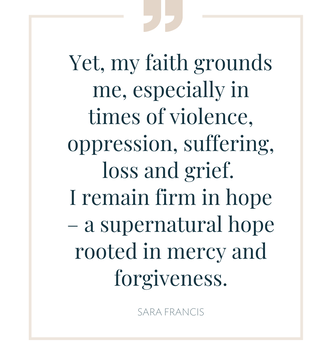 He said he feels fine for several weeks. Then for a week he can barely drag himself out of bed. The depression. The anxiety. This time of year is worse than the dead of winter, at least then he can skate and ski. The warmth and light of summer is exchanged for cooler, darker, shorter days. These destabilizing changes upset familiar routines. Autumn is the toughest time of year for him. I felt sincere gratitude that he put words to his pain. I was so thankful that he reached out. Because, if he hadn’t, I wouldn’t have known how he was feeling and I wouldn’t have known he needed support. Only God saves, however, I can be a source of support pointing toward the light. I want him to know what I wanted my cousin and friend to know, and what I want you to know too: You are loved. You are wanted. You are an irreplaceable gift. The world needs you. Your pain is not a burden. It unlocks compassion in this oftentimes cruel world. You are responsible for your wellness, but I want to be present to you. You are not alone. This too will pass. I’ll stand alongside you until it does. I love you. And God loves you more. October, my eyes used to be unaware of your underbelly. Until the shock. The agony. The confusion. The guilt. The anger. The reflection. The compassion. The remembrance. The magnitude of these feelings that were once foreign but have now become familiar. Lost innocence. No turning back. This is what it means to be human in relationship with other humans. Love has shattered my heart. Yet, my faith grounds me, especially in times of violence, oppression, suffering, loss and grief. I remain firm in hope – a supernatural hope rooted in mercy and forgiveness.
We live in a very connected world. We hear about the bad things happening across the world in an instant. Good and heartwarming videos can easily go viral. And yet sometimes it feels like the people you live with do not even know what you're going through. While it certainly feels like you are alone, you are not alone! Watch this video on mental health and know that there are many who feel disconnected, lost, and isolated. It's important that we reach out to someone and try our best to overcome the hesitation to talk to someone. If you need to speak to someone in the field of mental health, or visit this link for information. Alternatively, you can call 211 to access services that may make you realize that you are not alone and there is help available for whatever burdens you. Contact 211 to access to an entire network of community, social, health and government services. Your call, text or chat will be answered by a professional 211 Community Resource Specialist who is trained to assess your need and refer you to the most appropriate service or services. 211 is available across Alberta and is offered in over 170 languages over the phone. Why would I contact 211?
Consider this... we are made to walk this life together.
At the age of 11 was the first time I was exposed to suicide. A young man from our small rural church was reported missing. The men in our community gathered together to search for him, and my father found him. He had taken his life. Almost 5 decades have passed and suicide has continued to be part of my life through various avenues; the attempts of family members, the loss of a family member to suicide, numerous clients who have struggled with despair and suicidal ideation, and the poignant journey of traveling with families who are learning to live with these tragic losses. Fast forward to fall 2020 and suicide is still a grave concern. A year ago, most of us had not heard the acronym - COVID-19. Today it is the topic of conversations especially as we transition back to school and work places. The landscape of social interaction has been altered. In Canada, we had never experienced a global pandemic and its consequences; we were unable to organize to change in a satisfactory way because change occurred frequently with little warning and minimal personal control. We could only react, and many experienced crisis like job loss. Two things we know occurs in the aftermath of a disaster - a baby boom (memes suggest the babies born next spring might be referred to as Zoomers or Coronials), and an increase in mental health concerns. The Canadian Poverty Institute has completed a thorough review of the COVID 19’s impact on mental health to date. See report here. Their research revealed an increase in anxiety from 5-20% and depression from 4-10%. The Distress Centre in Calgary reported a 94% increase in calls in June of 2020 compared to June of 2019. There has also been an increase in suicide related contacts. Research suggests that persons who have experienced reduced income or unemployment, have pre-existing mental health conditions or are front line workers are at a higher risk of suicidal thoughts and attempts. Other psycho-social factors impacting suicidal ideation and attempts are concern for family members, self isolation, family violence, and social media and news exposure. Social media/news, family violence and loss of routine increase concern for children, and the elderly or convalesced persons were also labelled as high risk groups. The events that led to racism awareness superimposed further stress on an already vulnerable society even though racism reduction is also a grave concern. This information suggests that all of us have been impacted or know someone who may have been negatively impacted by COVID 19. Loving our neighbour at this time involves checking with those we know and asking how they are doing. If you suspect someone may be at risk of harming themselves, it is important to ask specific questions. Emotions deemed concerning are despair, anger and loneliness. If persons seem to be withdrawing, or are quarantining check in to see how they are coping. Connection with another person even if it is electronic can make a significant difference in someone’s experience of isolation. As for ourselves and family, recognizing and implementing resiliency based practices help maintain our wellness and perseverance. First, manage our expectations of self and others. The increased stress means most people are probably functioning 5-10% below normal capacity - be charitable - we are all in this together. Second, balance our activities/work with ones that restore like exercise, play, prayer, or contemplation. Third, establishing rituals that create routine and predictability such as family game night, attending mass, devotional or reading, or pizza nights. When change is unpredictable without an identifiable end - rituals/routines helps us stay oriented and future focused. Fourthly, minimize manageable stressors such as reducing social media and news exposure. Finally, if you notice that yourself or someone close to you seems persistently stressed, please consider connecting with professional resources. These include but are not limited to a spiritual director, your pastor, an agency like Catholic Family Services (Rapid Access Counselling program), The Distress Centre or a therapist in private practice (or you can go to Psychology Today and put in your preferences for a therapist and a list is generated). Today, on World Suicide Prevention Day, let us pray that through love of neighbour we can continue to interrupt the desire that suicide is a solution to overwhelming change and stress. May God look with mercy on all whose afflictions bring them distress, confusion and isolation, and may God give to them understanding helpers and the willingness to accept help.
Catholics across the Diocese of Calgary are looking for ways to de-stress from the distress. Adjusting to the new normal foisted on the global community by COVID-19, a disease that didn’t even have a name just weeks ago, thousands are live-streaming daily and Sunday masses. Others turn to traditional Catholic prayers like the rosary and Divine Mercy chaplet, seeking grace for the dead, the sick, their families and caregivers. Sr. Donna Marie Perry, FCJ, knows the news is bad. But the Calgary-based social worker and psychotherapist wants people to remember that the steps we take to stay “physically healthy should also include a focus on our mental and spiritual well-being.” That earns a quick nod from Dr. Peter Doherty, an associate professor of psychology and family studies at St. Mary’s University in Calgary. Dr. Doherty, whose work focuses on the integration of psychology and spirituality, agrees people should take mental health issues seriously in times of crisis. Mental health matters Sr. Perry is the clinical director of Insight Counselling and Therapy Centre. This not-for-profit offers long-term counselling at sliding rates as low as $5 a visit. Insight delivers care through practicum students supervised by Sr. Perry. All of the students are finishing master of counselling programs with various universities. The organization is one of the community-based organizations that benefits from Together in Action, an annual fundraising campaign by the Roman Catholic Diocese of Calgary. Given the imperatives of “social distancing” during the pandemic, Insight’s students currently offer support via phone. Sr. Perry herself lives in a seniors’ residence with strict pandemic protocols. With St. Mary’s University shuttered, Dr. Doherty is also staying close to home. They offered readers of Faithfully some ideas about how to make mental health a priority in trying times. Stay informed. Make healthy choices. “Fear is a healthy response to the situation, and it makes sense to stay informed. But let’s be smart about how much news we watch and read,” says Sr. Perry. She recommends people listen to morning updates and check in again in the afternoon or evening. A 24-hour news cycle includes a lot of recycled information and “when you’re hearing the same news all the time that increases stress,” says Sr. Perry. Hoarding items as basic as toilet paper shows “an emotional response to the crisis that doesn’t make rational sense,” adds Dr. Doherty. He also shakes his head when he sees examples of people not following recommendations for safe social interaction. One of the healthiest ideas he’s seen to date suggests people “not act as if you’re afraid of getting the virus. Instead, act as if you are trying to protect other people from getting it. The best information we have says most people who get this virus will survive. But we need to protect those who are vulnerable.” People who follow that advice should take mental comfort in knowing they are doing the right thing, says Dr. Doherty. Strengthen family ties. The social distancing protocols recommended by public health officials isolate family units. Sr. Perry’s urges families to use the time to your family’s advantage. Play games. Share meals. Go for walks where you can be 2 m from other people. If you have a backyard, use it. Reach out. “It’s like we are disconnected, together,” says Dr. Doherty. Since our own mental health benefits when we interact with others, this is a good time to phone, text, email, FaceTime or Skype with people we haven’t heard from in a while, “especially if we know people who might be alone.” This is also a good time to reach out to people whom we’ve hurt and vice versa. The words, “I forgive you,” are a way to free ourselves from the heavy, energy-sapping emotional burdens we carry when we haven’t let go of real or imagined hurts, says Dr. Doherty. This kind of pain bleeds into how we interact with others and how we handle strife. “It can keep us from handling unrelated situations well.” Pray. Pray together. Dr. Doherty encourages people of faith to use prayer as a conduit to deeper conversion. When we pray for the isolated, for those who’ve lost jobs and for people on the front lines of health care, prayer becomes a way to reach past ourselves to Christ, says Dr. Doherty. This can be helpful for people who grieve the fact that they cannot attend mass to receive the Eucharist. Family prayer is also helpful, says Sr. Perry. Praying for others teaches children that prayer is a way of helping others—and it reminds adults of the same thing. “It’s really important not to get caught up in ‘self’ and to keep looking outward,” says Sr. Perry. “Prayer can be very relaxing, too,” notes Sr. Perry. Following the Jesuit tradition of her charism, she uses her evening prayers “to look back on the day, to think about what went well and what didn’t go as well and to give thanks to God for the day.” She’s added more Hail Marys to her day by reciting that prayer while she lathers her soapy hands for the requisite 20 seconds (as recommended by public health), prior to rinsing off the soap with water. Sr. Perry says the Hail Mary is a good replacement for singing the ABCs or Happy Birthday songs. Listen. Talk. Be kind. People manage stress differently. If you see more anger than you’re used to, remember that unresolved fear may be expressed as anger, explains Sr. Perry. She encourages parents to listen when their kids talk about their fears. Be open to their questions and offer age-appropriate responses. “Let them know that you don’t know everything, but you will figure it out together.” Also, remember that children internalize messages from the external world and believe that everything that happens relates to them. It’s a matter of maturity, not selfishness, says Sr. Perry. “Children internalize information to make sense of their environment with limited experience. They use that information to make decisions about themselves and the world. They build what we call a script, and we live out of those childhood beliefs.” Laugh often. Love much. With so much doom and gloom, Sr. Perry suggests people who are feeling sad work some comedy into their screen time. She and Dr. Doherty admit they are especially worried about individuals and families who did not go into the current pandemic in strong mental health. “Not all families are healthy,” says Sr. Perry. She urges people who see others struggling to reach out with kindness. Where appropriate, you can also recommend they access support from community-based organizations. ===== Calgary Distress Centre Helpline: 403-266-HELP (4357) Written by Joy Gregory for Faithfully
Photo: Lightstock |
Author
Catholic Pastoral Centre Staff and Guest Writers Archives
July 2024
Categories
All
|
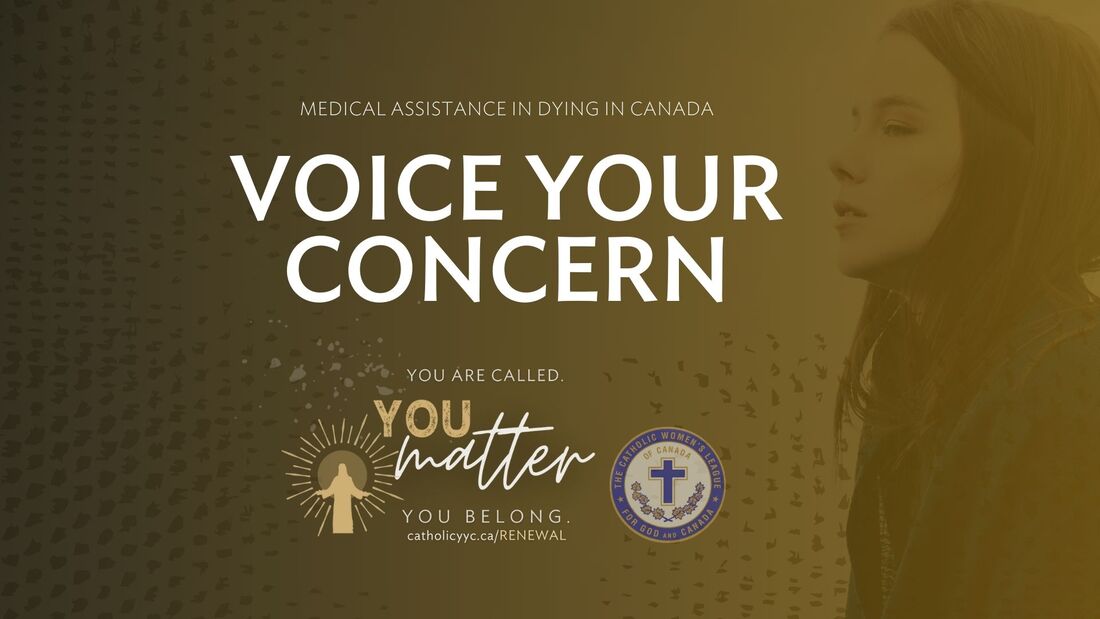


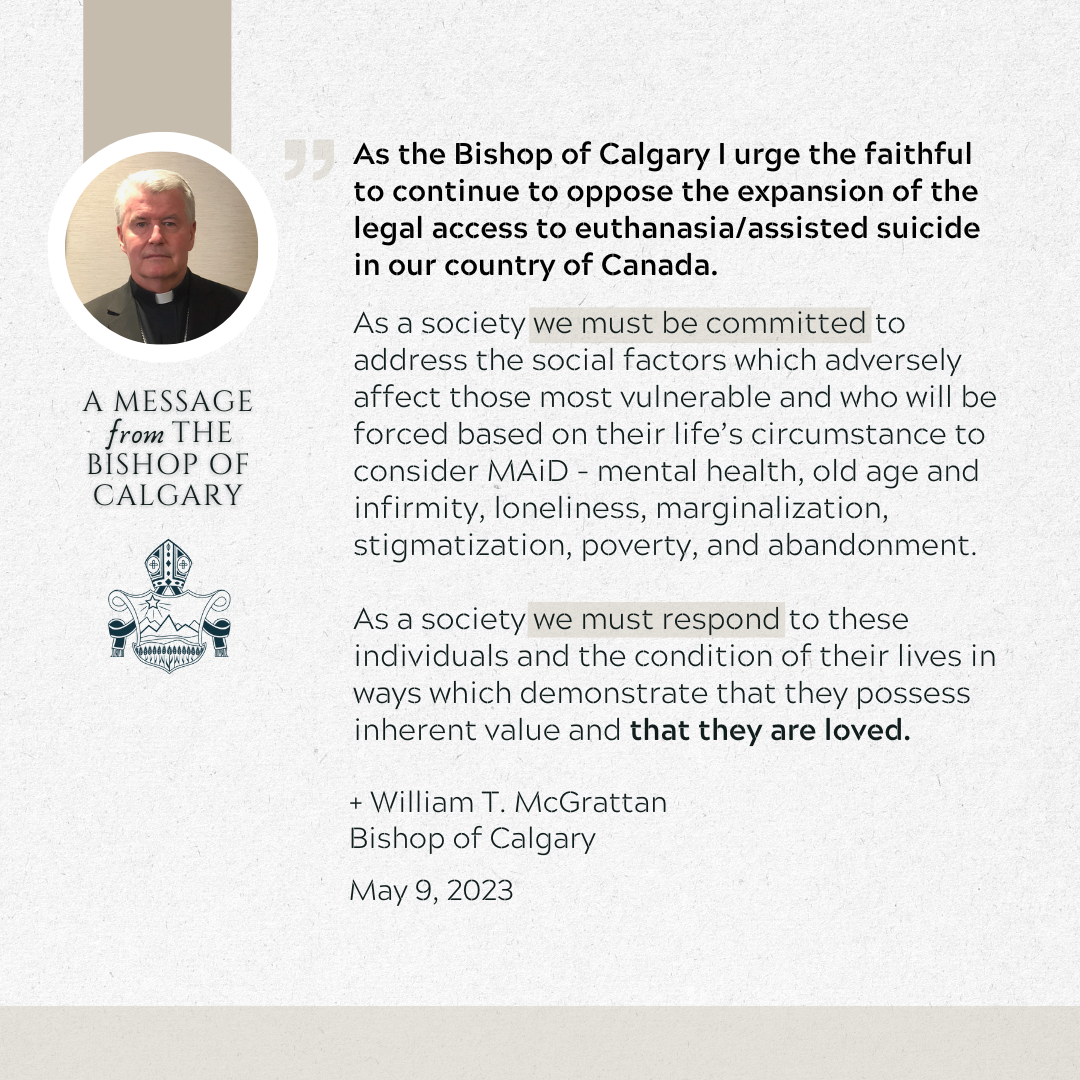
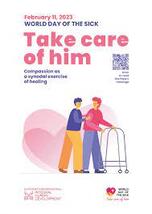


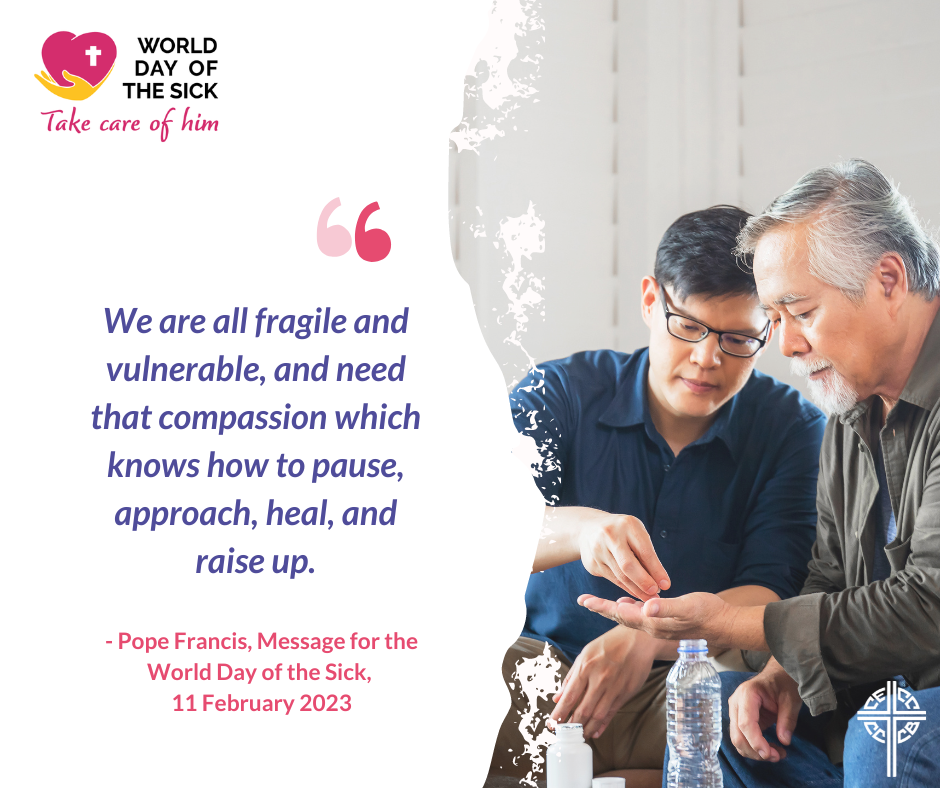
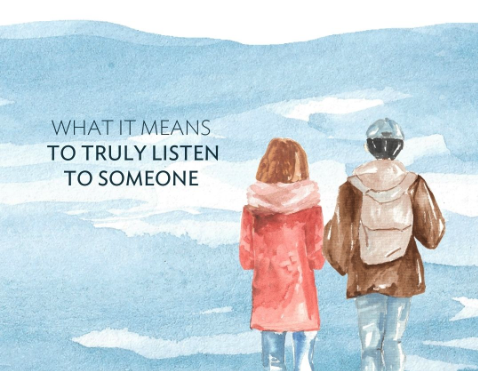
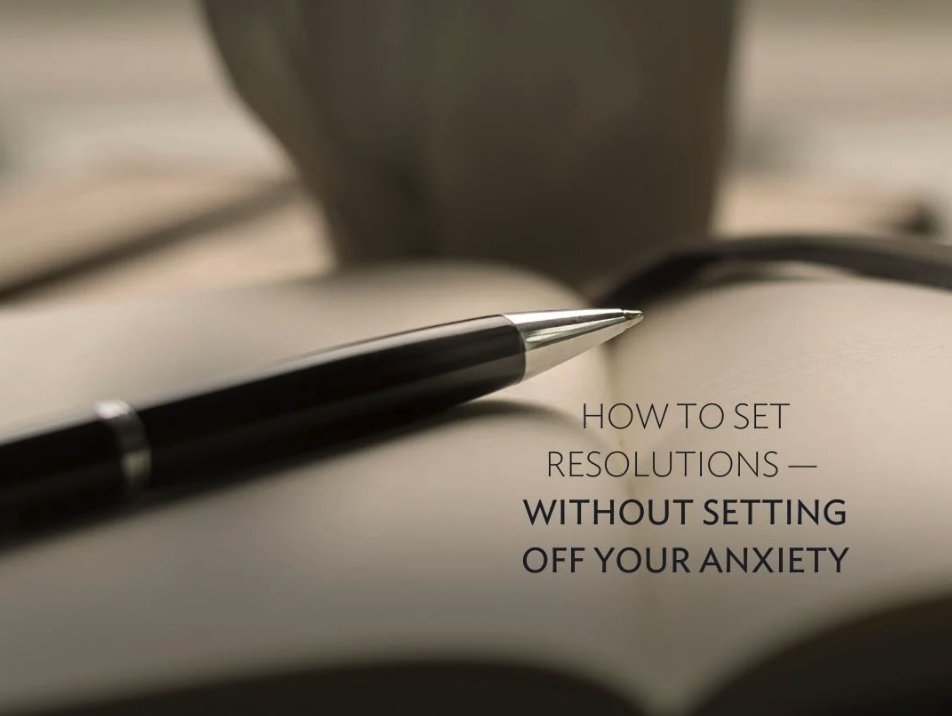

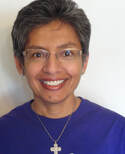

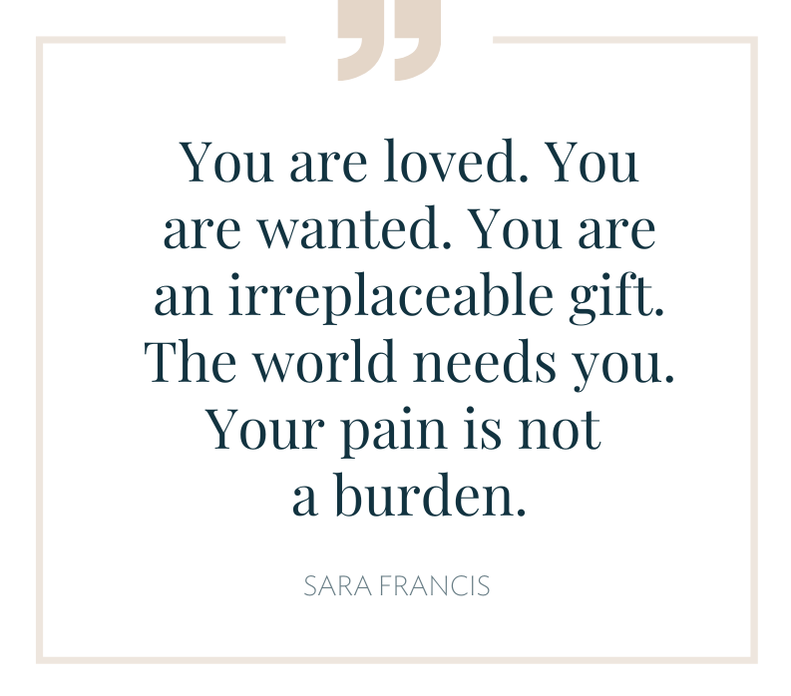

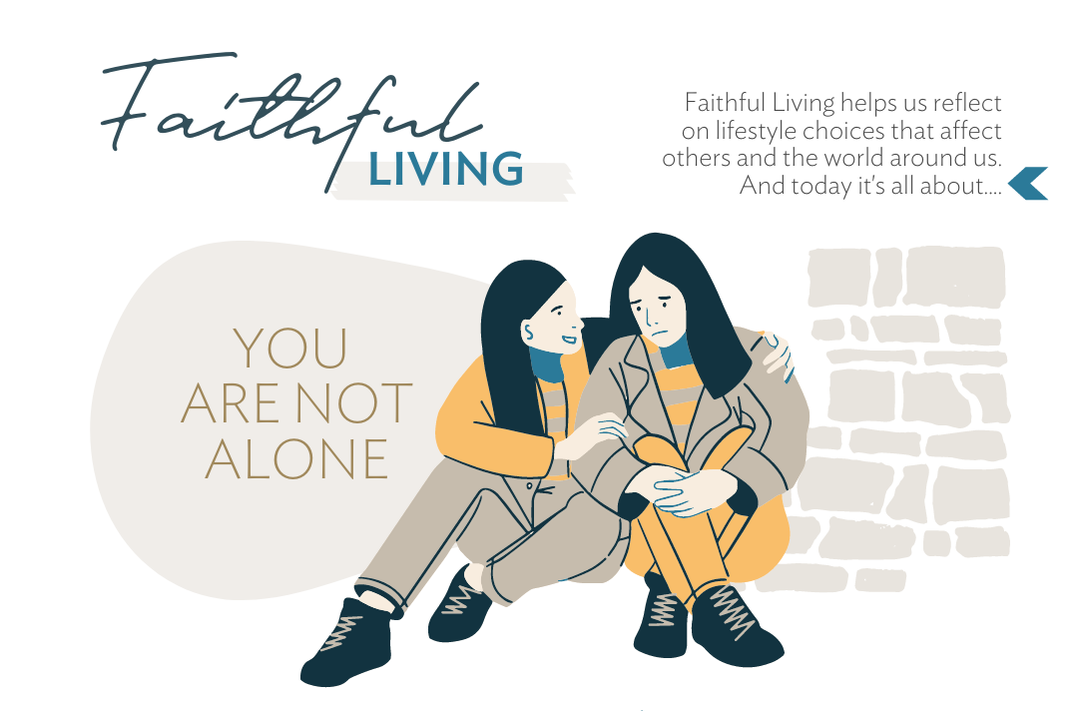



 RSS Feed
RSS Feed